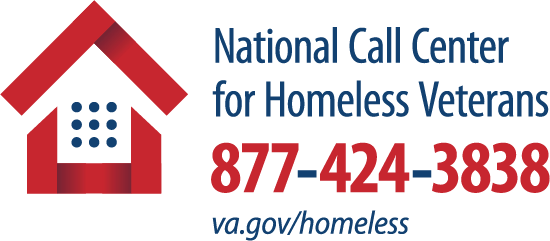Attention A T users. To access the menus on this page please perform the following steps.
1. Please switch auto forms mode to off.
2. Hit enter to expand a main menu option (Health, Benefits, etc).
3. To enter and activate the submenu links, hit the down arrow.
You will now be able to tab or arrow up or down through the submenu options to access/activate the submenu links.
Locator
Contact
Search
Page Not Found
The page you requested was not found.
We have recently redesigned our website. Some pages may have been moved or renamed.
How to Find What You're Looking For
- Start again at the Homeless Veterans Home page to browse the site.
- On the Search page, type keywords about the topic you're looking for in the Search box.
Make the Call
Dial 1-877-4AID-VET
(1-877-424-3838)
Access VA’s services for homeless and at-risk Veterans, available 24/7.
Chat Online
VA Medical Center
(VAMC) Locator
Locate Your Local
VA Medical Center Now
Veterans who are homeless or at risk of homelessness can call or visit their local VA Medical Center (VAMC) and ask for a Homeless Coordinator. Use the VA locator tool www.va.gov/directory to find your nearest VAMC and call or visit today.





























